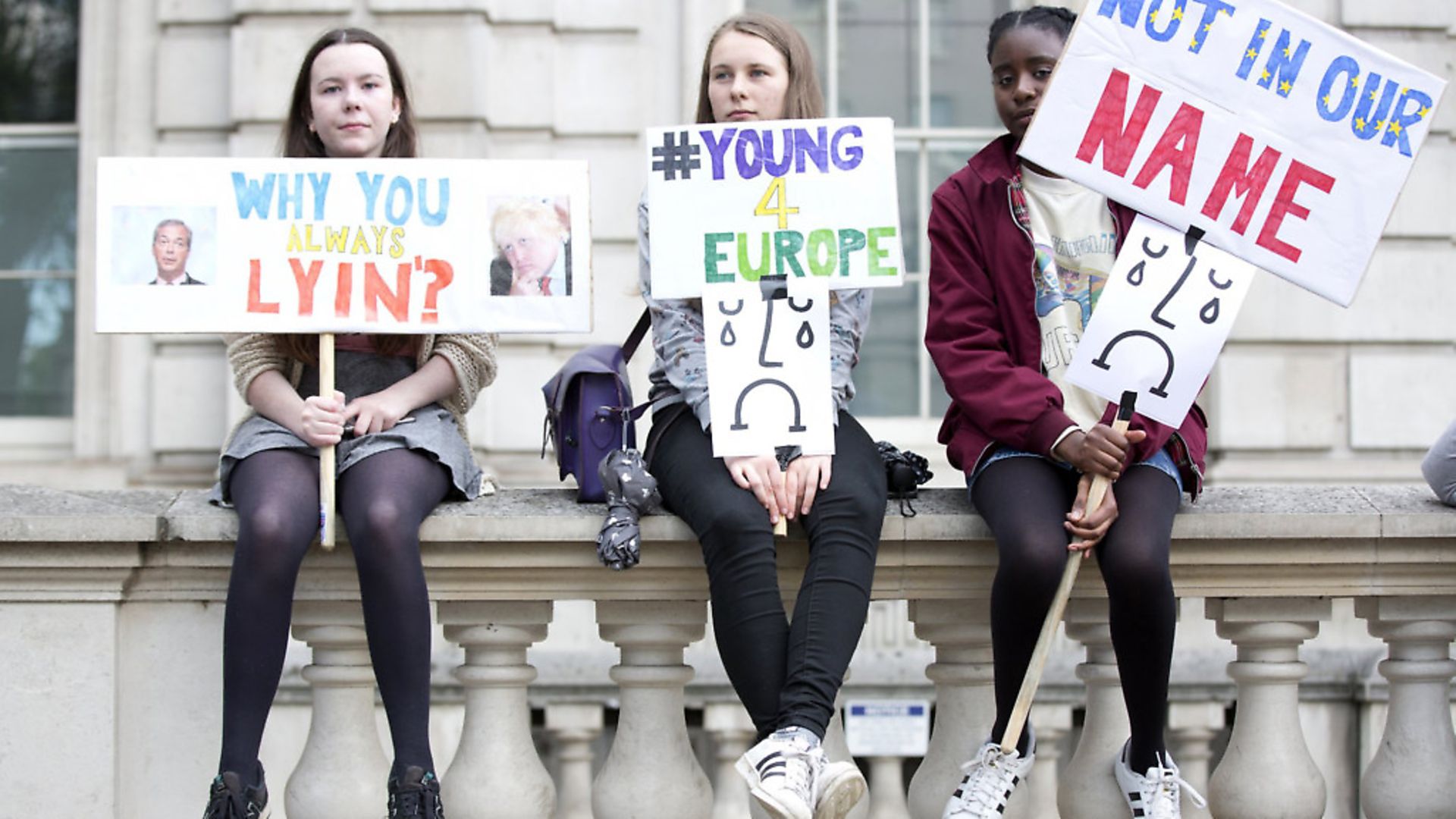
Youth activist AMANDA CHETWYND-COWIESON gives her view on what happens next to the Remain movement.
The word ‘lost’ has always struck me as a strange one to describe defeat. Lost means we are meant to let go of something already in our possession, so that we can still find it again. In the campaign for a final say referendum and, ultimately, to stay in the EU, we were aspiring to more than just hold on to the status quo.
The movement for staying close to Europe wouldn’t have ended once we had won a final say, and it won’t end just because December’s election didn’t go our way.
Because, in many ways, our movement was a vessel for the values we believed in so strongly – values that weren’t covered adequately by any other tent large enough to hold all the disparate groups that ours did. It was these values that led us to set up For our Future’s Sake – not, crucially, the other way around.
We were defined more by the values we stood for, rather than what we fight against; and this means that our defeat, although it truly is a defeat, will not destroy us.
Values like openness, accountability, diversity, representation: to our opponents, these are simply buzzwords or boxes to be ticked if you want to have credibly ‘engaged the youth vote’. But for us they will define the next decade of politics, and whether we can rise to face the serious challenges ahead.
We can only overcome them together. Going forward, all self-proclaimed ‘progressive campaigns’ must critically examine how representative and diverse their leadership and internal structures are. The parliamentary Labour Party is making headway: just over half of their MPs are women, and one in five are from a minority ethnic background. They will take a dim view of movements dominated by the male, pale and stale – especially if activists delivering the hours of graft are merely touted as evidence of their inclusivity.
We knew this in our fight against Brexit. It was why we didn’t host all-male panels (or ‘mannels’, as I prefer to call them) or all-white panels; why we insisted that working-class voices were given an equal platform, why we overwhelmingly campaigned outside of London.
Yes, we didn’t succeed. But that doesn’t lessen our achievements – record levels of youth voter registration, successive governments held to account by young people like never before; more school, college and university visits from MPs discussing Brexit than almost any other issue. And, for once, a campaign that both did humorous stunts and wasn’t afraid to challenge its friends as much as its foes.
Now, what we do have now is time. Time to think, communicate and organise. We should use it properly. Rushing unprepared into a fight where we’re already on the backfoot is terrible strategy; action for the sake of action will hurt us, not help us – especially when there are serious questions that need to be answered.
First and foremost: why are young people consistently marginalised in politics? A YouGov poll suggests that younger generations are more likely to feel as if their vote doesn’t matter. This, at least, is easy to explain. Young people are more likely to vote Labour, and a recent report from the Electoral Reform Society on the election showed that on average it took just 38,264 votes to elect a Conservative MP and 50,835 to elect a Labour one – casting the slogan “for the many, not the few” into a new light.
But this doesn’t explain why MPs tend to be far older than the average age in the UK (over 50% were over 50 in 2017), the relative scarcity of young voices in media, or why issues young people care deeply about are given lip service rather than the attention they deserve. Just saying the words “it’s important for young people to be engaged in our democracy” isn’t enough – you have to take meaningful and sustained action, the kind that doesn’t make headlines or photo opportunities, because the lives of young people are not, on the whole, very glamorous.
The fights ahead will not be glamorous either. Just as evil can be banal, doing good is often mundane. Join your trade union, encourage young people to register to vote outside of the general election rush, supporting movements such as schoolstrike4climate, having difficult conversations with those you hold dear about the country you want to live in; these are the things that will make the most difference if enough people do them.
But above all: be unapologetic for your beliefs. Be willing to compromise, to change your mind – but remember it’s still right, as it was two or ten years ago, to be pro-Europe. Our reasons haven’t simply disappeared: they include the EU funding my college received, the friends I made at university who came to study here, the workers’ rights protections I had after leaving university – these things will always be true, even after we leave at the end of the month.
The only thing we really stand to lose is our history. If we let those with temporary power rewrite it through our forgetting, then our defeat will be both absolute and inevitable. Keep it close, and keep each other close too. We will make it through this.
– Amanda Chetwynd-Cowieson is co-founder of For our Future’s Sake and chairwoman of the British Youth Council.









